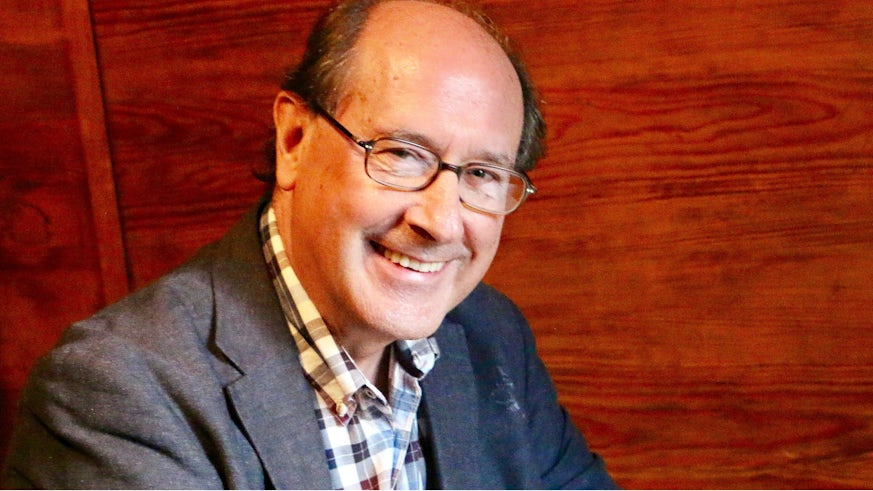Pioneering professor wins Eddington Medal
11 January 2019

A Cardiff University professor who discovered how to measure the expansion of the universe has been honoured by the Royal Astronomical Society (RAS).
Bernard Schutz will receive the Eddington Medal for ‘an investigation of outstanding merit in theoretical astrophysics.’
His pioneering work paved the way for analysis pipelines that are at now at the heart of searches for gravitational waves through the Laser Interferometer Gravitational Wave Observatory (LIGO) and the VIRGO interferometer.
In a 1986 paper, Professor Schutz, School of Physics and Astronomy, showed how gravitational waves can be used to measure the cosmic expansion rate.
He argued that gravitational waves from collisions (mergers) of two neutron stars or black holes are “standard sirens” carrying information about their distance to Earth.
Thirty years later, his theory was realised when both gravitational and electromagnetic waves were detected by LIGO. In 2017, Professor Schutz travelled to Stockholm to watch his former PhD supervisor and mentor, Kip Thorne, share a Nobel Prize for his work on LIGO.
The landmark discovery was made possible thanks to the significant contribution of a team of researchers at Cardiff University’s School of Physics and Astronomy.
Professor Schutz said: “I am delighted to be receiving the Eddington Medal. It is wonderful to have this recognition from my fellow astronomers and astrophysicists of the importance that work I did over 30 years ago has achieved today.

When I realised in 1986 that gravitational waves could help us measure distances across the Universe, its rate of expansion, and its age, I became convinced that detectors for these waves had to be built and brought into operation. I have worked for that ever since.
Professor Schutz joins an illustrious body of astrophysicists including Professors Stephen Hawking and Roger Penrose (1975) in receiving the accolade, named after English astronomer and mathematician Sir Arthur Eddington who made the first empirical test of Einstein’s theory. It was first awarded in 1953 to the cosmologist Georges Lemaître who proposed the expansion of the Universe on theoretical grounds.
“The Medal is more than a recognition of work done 30 years ago,” said Professor Schutz, who will receive the award at the National Astronomical Meeting in July.
“The pleasure of achieving this recognition is a reward for having dedicated much of my career to reaching the goal of opening the field of gravitational wave astronomy. Receiving the medal 100 years after Eddington himself provided crucial proof of the validity of Einstein’s theory makes it a special honour indeed.”
https://youtu.be/yJKho7HterU
Born and educated in the USA, Professor Schutz earned his PhD in Physics from the California Institute of Technology in 1971. After postdoctoral work in Cambridge with Stephen Hawking and Martin Rees, and further work at Yale University, he became a lecturer at what was University College Cardiff in 1974. In 1995, by then a Professor, he moved to Germany as one of two founding directors of the Max Planck Institute for Gravitational Physics (Albert Einstein Institute).
Retiring from that post in 2014, he returned to Cardiff University as a Professor in Physics and Astronomy and the first director of the University’s Data Innovation Research Institute. He serves as an Adjunct Professor at the Georgia Institute of Technology in the USA.
Professor Schutz’ body of work over 40 years continues to influence the future study of astrophysics.
“The observations we have made so far are just the beginning,” he added.
“As detectors improve, and as we go into space with European Space Agency’s Laser Interferometer Space Antenna (LISA) mission, we will use this tool to answer many questions about the history of the Universe.”
Share this story
We excel in education, research and innovation and are building strong international relationships whilst demonstrating our commitment to Wales.



